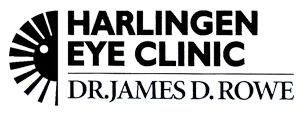Amblyopia, commonly called lazy eye, refers to the improper development or significant loss of vision in an eye. It occurs when the brain does not acknowledge the images seen by the amblyopic eye. Amblyopia Causes Amblyopia occurs when an individual cannot use binocular vision (both eyes working together)
Read more-
Amblyopia
Category: Vision Problems
-
Marsden Balls
Category: Vision Therapy Programs
Here, a ball with letters, numbers, colors, pictures, or a combination is hung from the ceiling. In activities used to help focus visual attention, the individual may be asked to concentrate on a figure while bunting the ball with a rod, or hitting or catching it with their thumbs, palms or fists.
Read more -
Syntonics
Category: Vision Therapy Programs
Known also as optometric phototherapy, syntonics deal with the application of selected visible-light frequencies and are used to treat lazy eye and problems with peripheral vision and depth perception. By applying particular visible-light frequencies through the eyes, syntonics can improve vision. This
Read more -
Blurry Vision
Category: Vision Problems
There are many potential causes for blurry eyes. The answer to why you have blurry vision is best answered by your eye care professional, who can offer diagnosis and prompt treatment so that your vision does not get worse. Some conditions that cause blurry vision are easy to treat, but others require
Read more -
Double Vision
Category: Vision Problems
Double vision, also known as “seeing double” or the medical term diplopia, is the perception of two images of a single object. This occurs when two nonmatching images are sent to the part of the brain that processes visual input. Over time, the brain eventually begins to compensate for this misinformation
Read more -
High Order Aberrations
Category: Vision Problems
In an ideal world, everyone would have perfectly-shaped eyes. The reality, however, is that practically every eye has some form of aberration somewhere in it. These aberrations may or may not cause vision problems, but don't be too surprised if your eye doctor informs you that you are having difficulties
Read more -
Hyperopia (Farsightedness)
Category: Vision Problems
An eye condition affecting roughly 50 percent of individuals who need glasses, hyperopia (commonly called farsightedness) is characterized by difficulty focusing on nearby objects while being able to see objects at a distance properly. Hyperopia occurs when your eyeball is too short or when your cornea
Read more -
Myopia (Nearsightedness)
Category: Vision Problems
Myopia, commonly called nearsightedness, is a refractive error of the eye, meaning that the shape of the eye or its cornea improperly bends light as it enters the eye. This hinders your ability to focus. Myopia is the most common refractive error of the eyes, and is caused by several factors including
Read more -
Ocular Migraine
Category: Vision Problems
The name conjures up pain, but ocular migraines are less about headaches and more about a vision problem. Ocular migraines are temporary visual disturbances that can last up to 30 minutes. This condition can affect one eye or both eyes simultaneously. An ocular migraine does not typically cause pain
Read more -
How the Eyes Work
Every morning, we open our eyes and become immersed in a wealth of visual information. The eyes and related brain structures are a complex system that allows us to experience visual information from the surrounding world. It is easy to take clear vision for granted, but even subtle changes in the structure
Read more -
Protecting Your Eyes
Of our five senses, humans rely on vision most strongly. Our everyday experience of the world is colored by our ability to see, our memory draws heavily upon visual information, and many activities of daily living are challenging without sight. As a result, it is essential to protect your eyes from damage.
Read more -
How to Make Your Child's First Visit to the Optometrist a Success
Category: Newsletters
Worried that your child may be uncooperative during his or her first visit to the optometrist? These tips will help make the visit a positive experience.
Read more -
Makeup Tips for Sensitive Eyes
Category: Newsletters, Tips for Healthy Eyes
Do your cosmetics make your eyes water and burn? Try these makeup tips for sensitive eyes.
Read more -
Does Outside Playtime Improve Children's Eyesight?
Category: Newsletters
Have you ever wondered why some people become nearsighted? Lack of time in the sun may be to blame.
Read more -
Proper Contact Lens Care Keeps Your Lenses Comfortable and Clean
Category: Newsletters
Do you follow care recommendations for your contact lenses? If not, you may putting your vision at risk.
Read more -
What Happens When You Don't Wear Sunglasses?
Category: Newsletters
Have you lost your sunglasses again? Failing to wear the glasses consistently may lead to several eye conditions.
Read more
